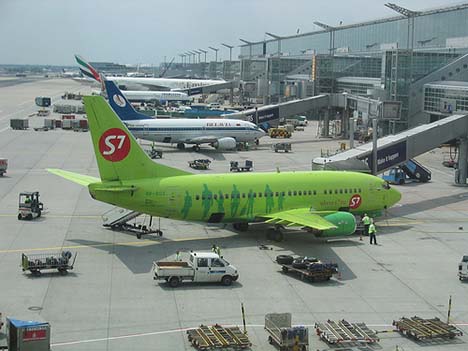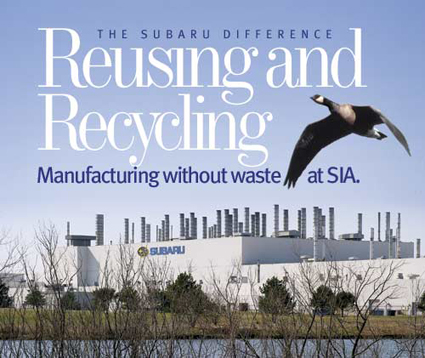 From local biking options in Pittsburgh to east coast travel via MegaBus and the future of nationwide travel possibilities on high-speed rail, I have written on varied modes of transportation that offer “greener” possibilities for my fellow wanderers. However, sometimes cost, time and distance make air the best option for travel. Somewhere between Chicago and Seattle last night, I pondered how my air travel was affecting my carbon footprint and ways you can find out how your travel affects yours.
From local biking options in Pittsburgh to east coast travel via MegaBus and the future of nationwide travel possibilities on high-speed rail, I have written on varied modes of transportation that offer “greener” possibilities for my fellow wanderers. However, sometimes cost, time and distance make air the best option for travel. Somewhere between Chicago and Seattle last night, I pondered how my air travel was affecting my carbon footprint and ways you can find out how your travel affects yours.
TerraPass’s Carbon Footprint Calculator allowed me to calculate the carbon emissions from my flight. I was surprised to find out that on a per passenger basis, flying was actually the “greenest” option between Chicago and Seattle, distance of course playing a large role here. TerraPass also gives individuals, families and businesses options for buying carbon offsets which allows even the most active jet-setter to be more green.
However, remembering Virgin Atlantic’s partly bio-fueled commercial aircraft flight in 2008 made me wonder where U.S. airlines stood on converting to alternative energies for air travel. Air travel does, after all, generate approximately 2% of man-made carbon emissions. Looks like the Pacific Northwest is taking the lead in focusing on sustainable energy fuels. Alaska Airlines, Boeing (NYSE: BA), Portland International Airport, Seattle-Tacoma International Airport, Spokane International Airport and Washington State University recently announced a strategic initiative to promote aviation biofuel development. The first regional assessment of its kind in the United States, the “Sustainable Aviation Fuels Northwest” project will look at biomass options within a four-state area as possible sources for creating renewable jet fuel. The project objective is to identify potential pathways and necessary actions to make aviation biofuel commercially available to airline operators serving the region.
Until aviation biofuel becomes the norm, green conscious travelers can look to air travel climate calculators and offsetting options to manage their own carbon neutral flights.
Image Credit: Sven via flickr under CC license.





I believe our major obstacle is finding an alternative to the "ignition = propulsion" relationship. Until we do, we will always be "footprinting" the planet.
I believe our major obstacle is finding an alternative to the "ignition = propulsion" relationship. Until we do, we will always be "footprinting" the planet.
James makes a good point. forward motion needs some sort of destruction of compounds (whether is be gasoline in an engine or carbohydrates in the body), the trick is to destroy something where the byproducts are harmless. Vegetable based fuels seem to fit the bill. This relates to your post on the documentary FUEL. Of course extensive testing is needed to ensure safety of bio jet fuel and trust in the product. Having you car break down in the middle of a road trip would suck, having the plane break would suck worse!
P.S. is cold fusion viable?
James makes a good point. forward motion needs some sort of destruction of compounds (whether is be gasoline in an engine or carbohydrates in the body), the trick is to destroy something where the byproducts are harmless. Vegetable based fuels seem to fit the bill. This relates to your post on the documentary FUEL. Of course extensive testing is needed to ensure safety of bio jet fuel and trust in the product. Having you car break down in the middle of a road trip would suck, having the plane break would suck worse!
P.S. is cold fusion viable?